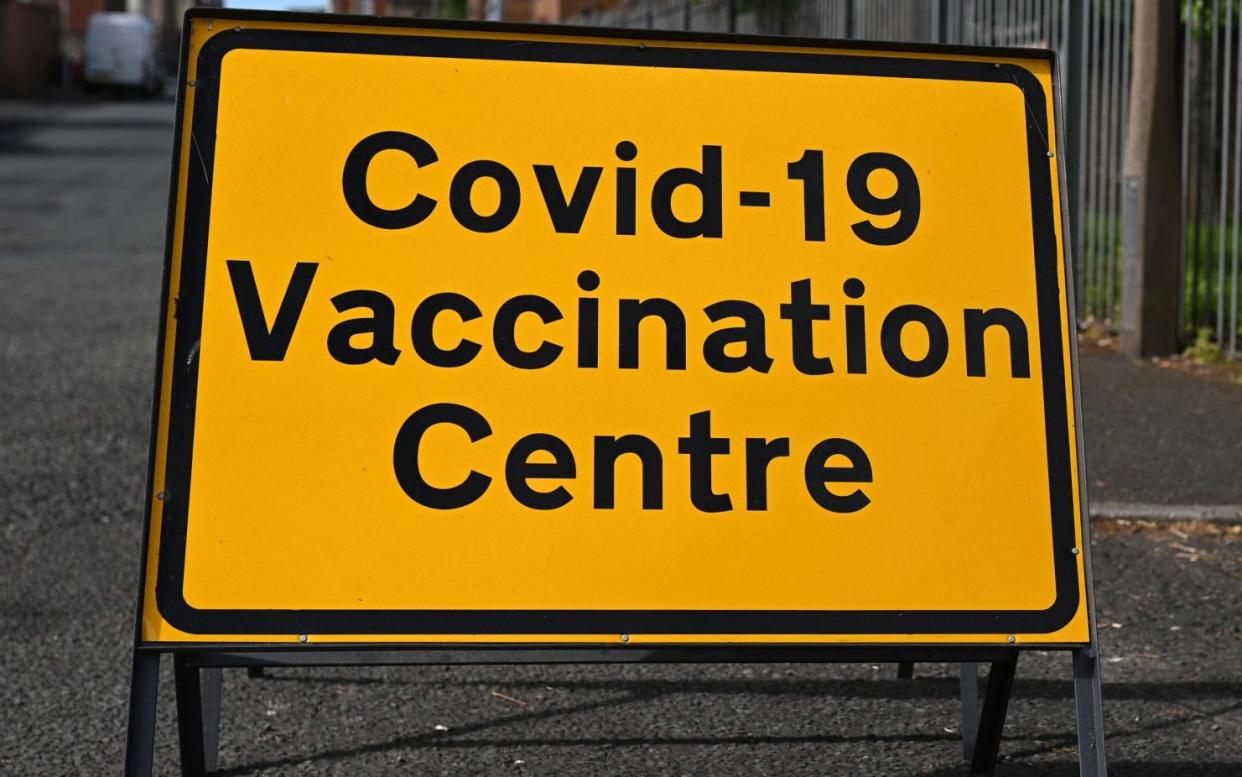Covid vaccines on hold for most children amid fears they could trigger heart conditions

Covid vaccines are on hold for most children amid concern that they offer little benefit and could trigger heart conditions, the Government's advisers have said.
The jabs will be recommended for around 370,000 children aged 12 to 15 who are most vulnerable to Covid, including those with severe learning disabilities or who are immunosuppressed.
However, the Joint Committee on Vaccination and Immunisation (JCVI) has said that, for the vast majority of children, the small risks from Covid do not outweigh the potential risks from vaccines.
Scientists said they are awaiting more safety data from other countries that have rolled out jabs to children before they make any recommendation in favour. They are seeking to assess whether second doses of the Pfizer and Moderna jabs could trigger heart inflammation, with early data suggesting such risks may increase in younger age groups.
The JCVI said almost all children and young people are at very low risk from Covid, with symptoms typically mild if they occur at all. As of March this year, fewer than 30 children have died in the UK because of Covid.
The committee said real-world data on the safety of Covid vaccines in children is so far limited. But the scientists highlighted extremely rare reports of myocarditis – inflammation of the heart muscle – and pericarditis, inflammation of the membrane around the heart, following the use of the Pfizer and Moderna vaccines in millions of younger adults.
Experts suggest there could be around one case per 100,000 jabs, with higher risks in boys, and some estimates suggesting one case per 20,000. In comparison, those aged between 18 and 39 were offered an alternative to AstraZeneca when the risk of rare clots was found to be around one in 50,000.
Members of the JCVI said they would take a "precautionary" approach as they await further global data. If vaccines are rolled out more widely, a one-dose option may be considered.
Prof Anthony Harnden, the deputy chairman of the JCVI, said: "The primary aim of the vaccination programme has always been to prevent hospitalisations and deaths. Based on the fact that previously well children, if they do get Covid-19, are likely to have a very mild form of the disease, the health benefits of vaccinating them are small.
"The benefits of reducing transmission to the wider population from children are also highly uncertain, especially as vaccine uptake is very high in older people who are at highest risk from serious Covid-19 infection. We will keep this advice under review as more safety and effectiveness information becomes available."
Fellow JCVI member Prof Adam Finn, of the University of Bristol, said there was now "pretty much incontrovertible evidence" of safety signals linked to jabs in the young, especially after second doses.
He said more evidence was needed to establish whether the small number of people who suffer heart problems make a full and complete recovery. "The cardiology advice we've received so far indicates that you can't really be sure about that until a period of at least three to six months after," he said.
A number of medics have called for the rollout of jabs to children to prevent the spread of the virus disrupting their education, but Prof Finn said it was not clear that vaccinations would be an effective way of achieving this, suggesting much of the current disruption was caused by isolation policies rather than the virus itself.
Teaching unions reacted with fury, with Paul Whiteman, the general secretary of the school leaders' union NAHT, saying: "Parents and school leaders alike will want to understand the rationale and scientific evidence that underpins the decision not to vaccinate children.
"The idea that they are less affected by Covid is demonstrably untrue given the massive disruption to their education over the last year, and also the worrying levels of long Covid in young people."
The new advice means only children assessed to be at increased risk of serious Covid should be offered the Pfizer vaccine. That includes children aged 12 to 15 with severe neurodisabilities, Down's Syndrome, immunosuppression and multiple or severe learning disabilities.
The JCVI has also recommended that children and young people aged 12 to 17 who live with an immunosuppressed person should be offered the vaccine, which it said would protect household members at higher risk of serious illness from Covid. Experts said it might also protect the mental health of such children, living with vulnerable parents or grandparents.
Seventeen-year-olds who are within three months of their 18th birthday can also be offered jabs.
Young people aged 16 to 17 with underlying health conditions which put them at higher risk of serious Covid should have already been offered vaccination.
Ministers and JCVI members insisted the decision had not been influenced by any shortages in supply of vaccines.
Sajid Javid, the Health Secretary, said: "Today's advice from the independent JCVI means more vulnerable young people at greatest risk from this virus can now benefit from Covid-19 vaccines. I have accepted their expert recommendations and I have asked the NHS to prepare to vaccinate those eligible as soon as possible."

